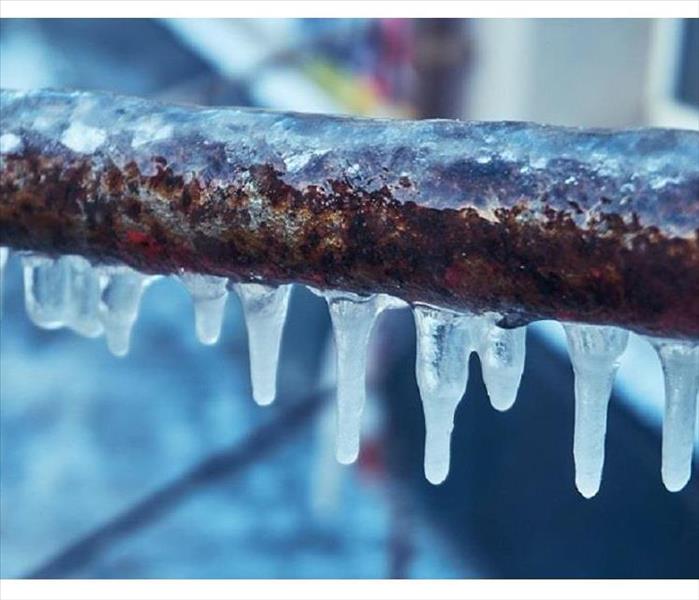Preventing Water Damage From Frozen Pipes | SERVPRO® of Western Dutchess County
1/7/2020 (Permalink)
During the chill of the winter months in Dutchess County, frozen pipes are a serious concern we hear about from homeowners. In fact, burst pipes are one of the biggest causes of water damage during the winter months, amounting to more than $5,000 in property losses on average.
Understanding why pipes freeze, why frozen pipes burst and how these factors can lead to water damage is an important part of keeping your household dry and warm during the wintertime. Read on for our guide to frozen pipes and how to prevent them.
How Pipes Freeze and Why They Burst
When the weather is cold enough, any pipe can freeze—while those running through unheated areas such as exterior walls or basements are the most vulnerable, even pipes inside the home can become frozen if conditions are right.
When temperatures drop and the water inside the pipes begins to freeze, it can create an inconvenience as you will not be able to access running water. However, if frozen pipes are left alone and no effort is made to thaw them, the pressure inside will become too great and the pipe can actually burst open, leading to water damage.
Ways Frozen Pipes Can Cause Water Damage
Once a pipe bursts open, the potential for water damage is automatically increased. Instead of bursting directly at the frozen blockage, pipes generally falter further up the line, in between a closed faucet and where the blockage occurs—often in a wall or under a sink, which may not be discovered immediately if it occurs. This allows all the built-up water to begin coursing through the breakage and flow freely through your home.
How to Prevent Pipes From Freezing
Fortunately, there are steps that homeowners can take to prevent their pipes from freezing and avoid costly water damage. By preventing pipes from freezing in the first place, it will greatly lessen your headache throughout the colder months:
- If you are leaving for a long period of time, make sure the heat stays set to above 50 degrees.
- Leave faucets on a slight drip so water is constantly running through the pipes.
- Open cabinet doors in the kitchen and bathroom and ensure all the bedroom doors are open to increase airflow.
- Add insulation to exterior areas with water pipes and/or to the pipes themselves.
- Keep garage and cellar doors closed tightly if there are water lines inside.
Are you concerned that a pipe has burst in your home? Contact us to have our trained experts inspect your home for moisture damage. We're here to help 24/7!





 24/7 Emergency Service
24/7 Emergency Service
